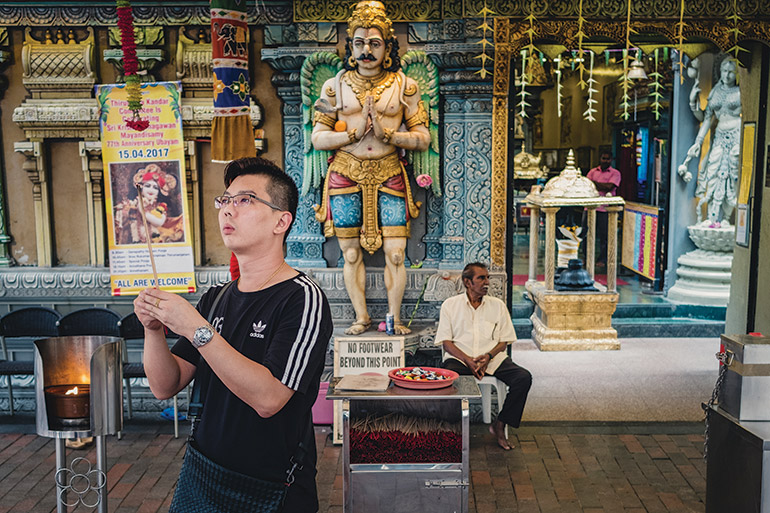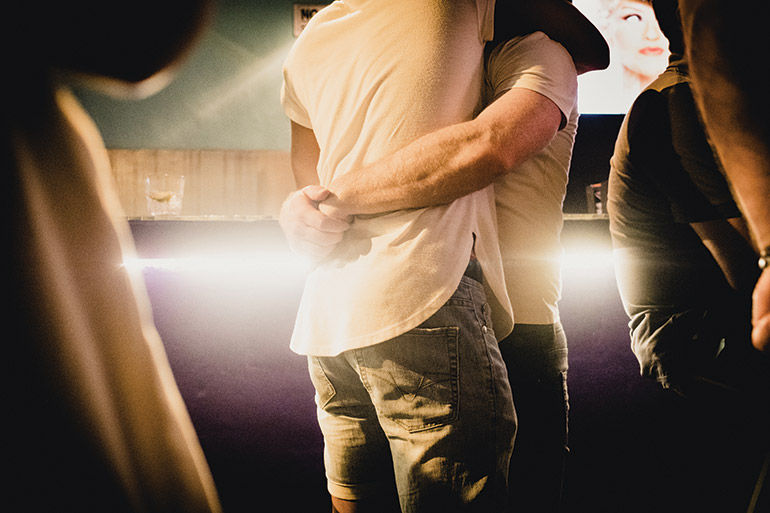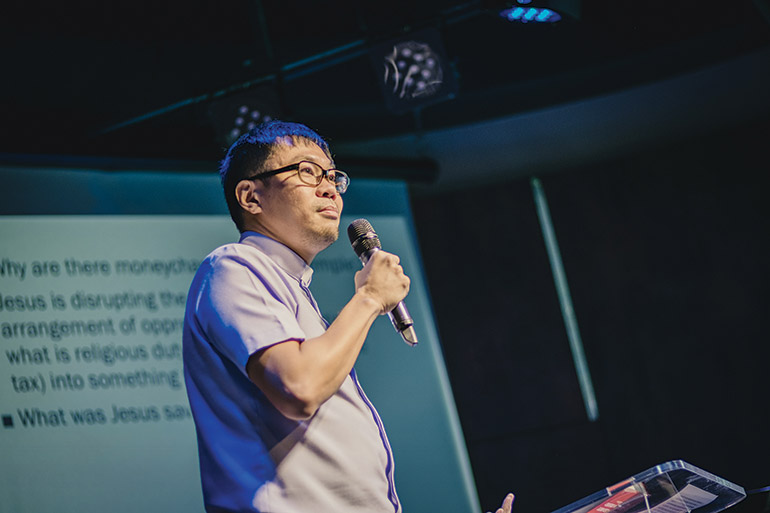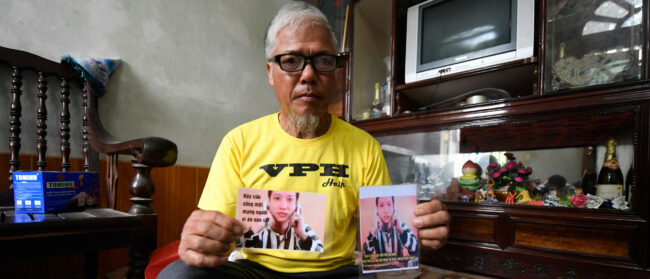The traditional Chinese Kwan Im Thong Hood Cho Temple, situated near the city centre, is one of Singapore’s most visited. People flock to it daily in the belief that praying to the Goddess of Mercy brings good fortune. Many devotees also stop at the Hindu Sri Krishnan temple right next door to light joss sticks; it happens so often that the Hindu temple’s management have erected an altar to the Goddess of Mercy by their entrance.
It’s a scene that’s symbolic of the religious diversity among the 5.7 million people of different races, religions, nationalities and backgrounds crammed onto a tiny island. In 2014, the Pew Research Centre ranked Singapore as the most religiously diverse country in the world.
Making sure that everyone gets along presents unique challenges, and in Singapore the government and courts have a broad set of tools ostensibly fit for this purpose, including laws meant to prevent hate speech and even hurt feelings. However, simmering tension over how those laws are applied – or not – came to a boil in March when teenage blogger Amos Yee was given political asylum in the US after a court there ruled that he had been subjected to political persecution.
Yee first shot to fame in 2015 when, shortly after the passing of Singapore’s first prime minister and founding father, Lee Kuan Yew, he released a YouTube rant targeting the revered elder statesman – with swipes at Christianity thrown in for good measure. He also published a blog post with a cartoon of Lee in an explicit sexual position with the late British Prime Minister Margaret Thatcher. All this got the then-16-year-old arrested, kickstarting a process that ended with a sentence of four weeks’ imprisonment for “wounding religious feelings” and distributing obscene content.
Shelley Thio, a human rights activist who has supported Yee during both his prosecutions, told Southeast Asia Globe that while she didn’t always agree with his actions, she felt it was important to uphold the principle of free speech.
“He shouldn’t have been charged to begin with,” she said. “When he was charged it wasn’t for hate speech, it was politically motivated because of Lee Kuan Yew. And they gave him very heavy penalties for a first offence.”
The whole saga repeated itself the following year, when Yee was convicted once more for making comments against Christianity and Islam, such as: “With all due respect, Christians, you can shove that faith up your ass. Faith! Faith! I’d be damned at this retardation of humanity. F**k you, Christian shits.”

The state has not shied away from taking on cases where it deems speech to be ‘divisive’ or hateful. An imam from India was fined about $2,900 and deported in early April for making controversial comments about Christians and Jews during one of his Friday sermons. Stern warnings were also issued to university professor Syed Muhammad Khairudin Aljunied, who expressed support on Facebook for the sermon, and to Terence Nunis for putting the video of the sermon online. The police said that Nunis had broken the law by making the video public, rather than reporting it to the authorities.
Yee’s case, however, drew new levels of criticism from human rights and free-speech groups around the world; criticism that was validated when a US immigration court judge granted Yee asylum at the end of March.
The response from the Singaporean establishment was one of defensive outrage. The US “allows such hate speech under the rubric of freedom of speech”, the Ministry of Home Affairs said in a terse statement. “Singapore takes a very different approach. Anyone who engages in hate speech or attempts to burn the Qur’an, Bible, or any religious text in Singapore, will be arrested and charged.”
The government was backed by both the Law Society and the Association of Criminal Lawyers of Singapore (ACLS), groups who represent the legal fraternity in the country. “Singaporeans jealously guard the multiracial, multicultural and multi-religious harmony that we have. When antisocial miscreants share their views with a view to incite hate, we fully back the efforts of the Attorney-General’s Chambers to prosecute and hopefully rehabilitate such individuals,” Sunil Sudheesan, the president of the ACLS, wrote in a letter published in the Straits Times.
Yet many argue that Yee’s actions did not meet the standard definition of hate speech, which usually requires the speaker to encourage causing harm to others. The teenager was charged under a section of the Singapore Penal Code that deals with the “deliberate intention of wounding the religious or racial feelings of any person” – a far lower bar than inciting violence or discrimination against any particular group.
“The post-hoc claim that Yee was guilty of ‘hate speech’ – coming not just from the government but, more disappointingly, from a criminal lawyers’ association – may score political points with conservatives, but it’s not dispassionate legal analysis,” said Cherian George, an associate professor at the Hong Kong Baptist University and author of Hate Spin: The Manufacture of Religious Offense and its Threat to Democracy.
“The US “allows such hate speech under the rubric of freedom of speech”, the Ministry of Home Affairs said in a terse statement. Singapore takes a very different approach.”
Ministry of Home Affairs, Singapore
While Singapore has laws specifically criminalising incitement, there is also legislation outlawing a wider range of speech through broader terms such as promoting “feelings of ill-will and hostility between different races or classes”, as written in the Sedition Act. In 2015, a husband-and-wife team were charged with sedition for articles on their website The Real Singapore. One article, for example, falsely claimed that a scuffle that took place at a procession during the Hindu festival of Thaipusam had been sparked by a Filipino family, playing on anti-immigrant sentiments in Singapore.
When such cases get to court, deciding what has or hasn’t crossed into illegal territory can get fuzzy. During the trial, the prosecution produced online comments from people who were infuriated by the articles, evidence that they said supported allegations that the couple had caused “feelings of ill will and hostility”.
“When it’s so broad, how do you prove it?” asked Priscilla Chia, who assisted the couple’s defence team as a trainee lawyer. “It’s a very fine line and you don’t know when it’s actually crossed.”
The existence of such broad legislation means that the system is vulnerable to abuses of power, said Thio. “We can see from their past actions that they have used legislation against people who oppose or criticise their policies. I strongly advocate for free speech, because I think governments in power can abuse these instruments against its own people.”
While there are those who say all these laws are necessary to preserve social harmony between the many groups represented in the city-state, there are other segments of the population asking why the laws don’t seem to apply to them.
“It is not unusual for the LGBT community in Singapore to experience hate speech in different contexts, most notably on social media…”
Leow Yangfa, executive director, Oogachaga

“It is not unusual for the LGBT community in Singapore to experience hate speech in different contexts, most notably on social media, through comments made by individuals, and in public statements by influential newsmakers, such as politicians or religious leaders,” said Leow Yangfa, executive director of counselling organisation Oogachaga.
In 2014, the aforementioned university professor Syed Muhammad Khairudin Aljunied published a Facebook post likening homosexuality to “diseases”, adding: “We will stop these cancers in their tracks!” While his more recent religion-related comments led to his suspension from the National University of Singapore and a stern warning from the authorities, his comments about homosexuality only resulted in him being counselled by the university for “provocative, inappropriate and offensive language”.
In November 2016, Bryan Lim Sian Yang, a 36-year-old corporate consultant, was fined $2,500 for threatening to “open fire” on the LGBT community in the aftermath of the shooting at a gay club in Florida. It was a rare case of prosecution for violent speech against LGBT people in Singapore but was seen by many as largely symbolic, as he dodged a far more serious charge of encouraging violence, which could have earned him a five-year prison sentence.
“Within the local LGBT community at least, there seems to be an understanding that there is no available protection against homophobic and transphobic hate speech,” said Leow.
Reverend Miak Siew is the executive pastor of the Free Community Church, which operates under the slogan “Welcome Home”, encouraging people from diverse backgrounds to join in its activities. For him, Singapore’s tight grip on speech does the opposite of protecting society.
“By putting harmony as the ultimate goal in society, we have only quelled or silenced the disagreements but not resolved them,” Siew said. “And that builds a very insecure society.”
“How do you inoculate people from bad ideas?” he added. “You teach them how to reason, you teach them different arguments, you let them see things in a certain way,” he added. “Allowing all these things into the public square actually allows people to see more than one perspective, and gets them trained to weigh things against each other. But by banning it, you’re driving it underground.”
As a pastor and LGBT rights advocate, Siew is familiar with how a lack of recourse has pushed LGBT Singaporeans to rely on other methods outside official recourse to deal with prejudice and discord: “Maybe it’s because we have no choice but to live with it,” he said. “Well, we learn to engage in other ways. We learn to engage in dialogue or debate.”

George, whose book explores the regulation of hate speech in the US, India and Indonesia, points out that Singapore isn’t alone in having laws that go beyond hate speech to criminalise insult. “In most countries, such prohibitions invariably backfire, because the hurting of feelings is inherently subjective,” he said. “So the law gets weaponised by the most intolerant segments of society – the opposite effect of promoting tolerance and harmony.”
Ultimately, Thio feels there should be more trust in the people to make up their own minds: “We are intelligent people, and we can decide what’s right and what’s wrong if we’re fully informed, instead of being fed the information [the government] wants to feed us.”


